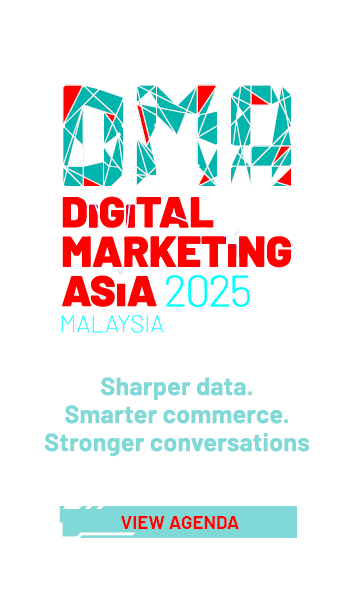



Where is Kate Middleton? What brands can learn about consumer trust from photoshop fail
share on
The world has been abuzz with chatter and conspiracy theories regarding the whereabouts of British princess Kate Middleton after a long absence following a planned abdominal surgery.
After a Mother's Day photo, supposedly by the Princess, was pulled from media outlets for having clear photoshopped or AI involvement, the world simply wants to know: Where is the princess?
What went down
Middleton's disappearance began when she was admitted into hospital in January.
“Her Royal Highness the Princess of Wales was admitted to the London Clinic yesterday for planned abdominal surgery,” Kensington Palace said in a statement at the time.
"The surgery was successful, and it is expected that she will remain in hospital for ten to fourteen days, before returning home to continue her recovery. Based on the current medical advice, she is unlikely to return to public duties until after Easter," it continued, adding that she would be postponing upcoming engagements till then.
Don't miss: Malaysia Airlines' attempt to use AI stirs up conversations around authenticity
Rumors began to swirl that something might be amiss with Middleton when Prince William, her husband, pulled out of a scheduled appearance at a Windsor Castle event due to a personal matter, according to CBS.
Many suspected that this had to do with Middleton's health. On 5 March, the princess was supposedly photographed in a car with her mother, Carole Middleton. However, the blurry photos of the princess with sunglasses on were not enough to convince the public that this was really her.
On 11 March, which is when the UK celebrates Mother's Day, Middleton supposedly took to Instagram to share a photo of herself surrounded by her children.
However, shortly after, The Associated Press issued a 'kill notification' asking reporters to avoid using the image as it appeared that the "source manipulated the image." Netizens spotted several errors such as Princess Charlotte's skirt being misshapen and Middleton's hands and hair being blurry.
Middleton then issued an apology on Instagram saying that like many amateur photographers, she does occasionally experiment with editing.
"I wanted to express my apologies for any confusion the family photograph we shared yesterday caused. I hope everyone celebrating had a very happy Mother’s Day,” she said.
Since then, the Internet has emerged with reported sightings of the Princess which later get debunked as being AI-edited images meant to spread disinformation.
AI and consumer trust
AI and its ability to distort photos have been a point of major discussion particularly with brands hoping to avoid the spread of disinformation and the loss of consumer trust. In fact, more firms are looking for ways to highlight the fact that images have been altered by AI.
YouTube for example, this week, introduced a new tool in Creator Studio that will require creators to disclose when content a viewer could easily mistake for a real person, place or event, is made with altered or synthetic media, including generative AI. Meta has also implemented similar controls on Instagram.
This is largely because consumers are getting more decerning. In fact, according to Steve Vinall, director of global brand and communications at Bynder, a digital asset management firm, 20% of consumers felt a brand was untrustworthy if they thought content featured on social media was AI-generated.
“When in the correct context, AI-generated images can be useful for a number of reasons. On this occasion however, it is a prime example of why brands need to be careful with their use of AI,” said Vinall, referencing Middleton's incident.
“This situation highlights that consumers are growing increasingly aware of the tell-tale signs of AI-generated, or notably edited, images. In fact, with this story gaining so much attention, it's likely to make even more consumers skeptical about images used by brands or public figures in the future,” he added, saying that it is imperative that brands remain transparent with their audience, and either declare a photo has been created using AI or simply to think twice before using it if there is a possibility that it will lead to mistrust.
Adding to his point, Lars Maehler, head of Digitas Hong Kong, noted that in this age of AI generated media, the quest for digital authenticity has become a "pressing concern", as AI blurs the line between fact and fiction, demanding effective methods of verifying and tracing the origins of digital media.
"The growing predicament outlines that AI-generated content presents both positive and negative implications and context of its use is important. While it enhances artistic expression and accessibility. It also poses a challenge related to misinformation, manipulation and erosion of trust," he explained.
Building trust through verification
Saying that, Gen AI has truly shaken up how marketing is done with organisations already investing in Gen AI for marketing and dedicating a whopping 62% of their total marketing technology budget towards it.
So, what are some lessons that brands can learn from Middleton's photoshop fail and as AI usage ramps up?
For one, it is important to build trust through verification. "There needs to be rigorous verification processes in place to ensure authenticity of content, regardless of format, especially in high profile situations," said Maehler.
"Techniques include, but are not limited to including metadata, watermarks, digital signatures and blockchain to record and preserve provenance data for AI generated content," he said. "Not only does this help prevent the spread of misinformation, but it also protects the content creators' rights, simultaneously enhancing the quality and value of digital content."
Brands also need to prioritise transparency as they embark on their AI journeys, according to Shouvik Mukherjee, chief creative officer, Asia Pacific at Golin Group.
"Every new technology has its early adopters and skeptics. AI is fundamentally transforming our industry and life, and brands can’t ignore or escape it," he said. "Hence it’s critical for brands to have clear ethical and legal guidelines while implementing AI tools across its workflow."
Mukherjee suggests considering how AI can help upskill employees in a brand, studying the impact it’ll have on the different stages of workflow processes, and seeing whether the use of AI is aligned to a brand's principles, ethical values and legal frameworks.
"The acceptance of society on every topic evolves with time and with the advancements in technology. For example, hand-painted portraits were the norm before photography was invented. Today most phone cameras come with inbuilt filters and those photos are accepted as ‘profile shots’ on social and corporate pages," he explained.
"One can’t rule out the possibility that AI generated photos with exact likeness to an individual may become an acceptable norm in the future. Today, the speeches of politicians or corporate leaders are often written by other professionals- and these are accepted as their statement as the leaders approve, endorse or deliver them," Mukherjee explained, adding:
Consumers appreciate honesty and it’s important that brands are transparent in their use of technology and stay true to their brand values.
Adding to his point, Lierence Li, managing director of Market Hubs explained that brands should also openly acknowledge the use of AI and ensure that their core values and authenticity are not compromised.
"By being honest with the public, brands can maintain trust and demonstrate that technology is merely a tool to enhance their work, not a means to deceive their audience," he said.
True enough, when brands are not upfront about their use of AI, it can cause a huge blow to trust. For example, recently, airline carrier Malaysia Airlines drew mixed sentiments after its recent AI-generated Chinese New Year post raised questions of authenticity and ethics in marketing.
The post aimed to promote the airline's domestic and international flights during the festive period and showed a family laughing together as they celebrate the new year. It said, "Embrace the joy of family reunions this Chinese New Year" with prices for flights included. However, netizens were quick to point out that the image looked to be created using AI.
One user said "using AI-generated images made their image look cheap" while another questioned if a photographer was hard to find. Meanwhile, some users showed support, commenting "wow nice AI image" and defended the company against users whose comments denote a negative tone.
Using AI to accelerate the business
To avoid similar blunders such as with Malaysia Airlines and Middleton, brands should use technology to augment and accelerate their business by strengthening their connection with the audience, according to Charlotte Mceleny, PR director for SEA, India and ANZ at Media.Monks.
"If they use AI to distort or falsify their story, they will soon be out of touch with consumers, eroding the true foundation that all strong relations are built on: trust. This is true for brands, governments, and even royalty," she said.
Mceleny added that nowadays, audiences are getting increasingly sophisticated, and they’re exposed to the same tools as brands and agencies.
A call for labeling work generated with AI is the answer to strengthening the bond with brands. It should be the standard, not a platform regulation.
She added that these days, smart marketers should move away from just the efficiencies of AI towards its effectiveness.
"They should ask, how does AI help me better understand my audiences, channels, and opportunities?" she said, adding that consumers want relevant, authentic, and meaningful engagement, which is the foundation of a solid brand relationship with its users.
Photo courtesy of The Prince and Princess of Wales
Join us this coming 24 - 25 April for #Content360, a two-day extravaganza centered around four core thematic pillars: Explore with AI; Insight-powered strategies; Content as an experience; and Embrace the future. Immerse yourself in learning to curate content with creativity, critical thinking, and confidence with us at Content360!
Related articles:
YouTube now requires creators to disclose when realistic content was made with AI
Under Armour's AI-powered commercial accused of plagiarism
Could OpenAI's text to video AI model Sora change the game for brand films?
share on
Free newsletter
Get the daily lowdown on Asia's top marketing stories.
We break down the big and messy topics of the day so you're updated on the most important developments in Asia's marketing development – for free.
subscribe now open in new window
